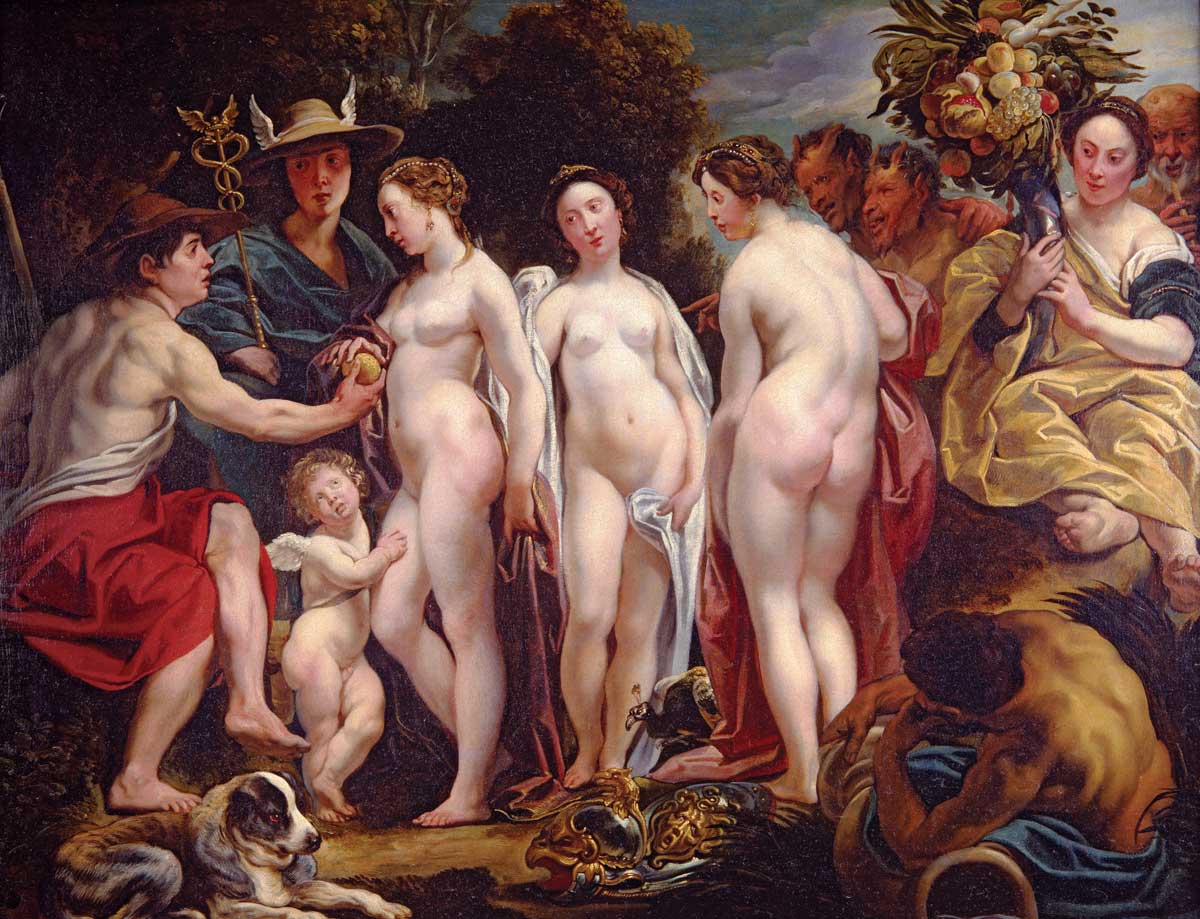The Judgement of Paris
A divine beauty contest leads to the most famous war of the ancient world.

Zeus, king of the gods, threw a banquet to celebrate the marriage of Peleus and Thetis, the parents of Achilles. Eris, the goddess of discord, was not invited, for obvious reasons, but turned up anyway, hurling a golden apple into the assembly, inscribed with the words: ‘To the fairest one.’
Three goddesses would compete for it, but Zeus refused to be the judge, appointing Paris, a mortal Trojan, to the task. He can be seen on the left of the painting, shepherded by Hermes. The goddesses attempted to bribe him. Hera offered him Europe and Asia, Athena the mastery of art and war, while Aphrodite said she would grant him the most beautiful woman in the world – Helen of Sparta, the wife of Menelaus, king of the Spartans. Aphrodite’s bribe was one he could not resist and he declared the goddess of love the winner. The Trojan War, born of the Greeks’ desire to retrieve Helen, would be the result.